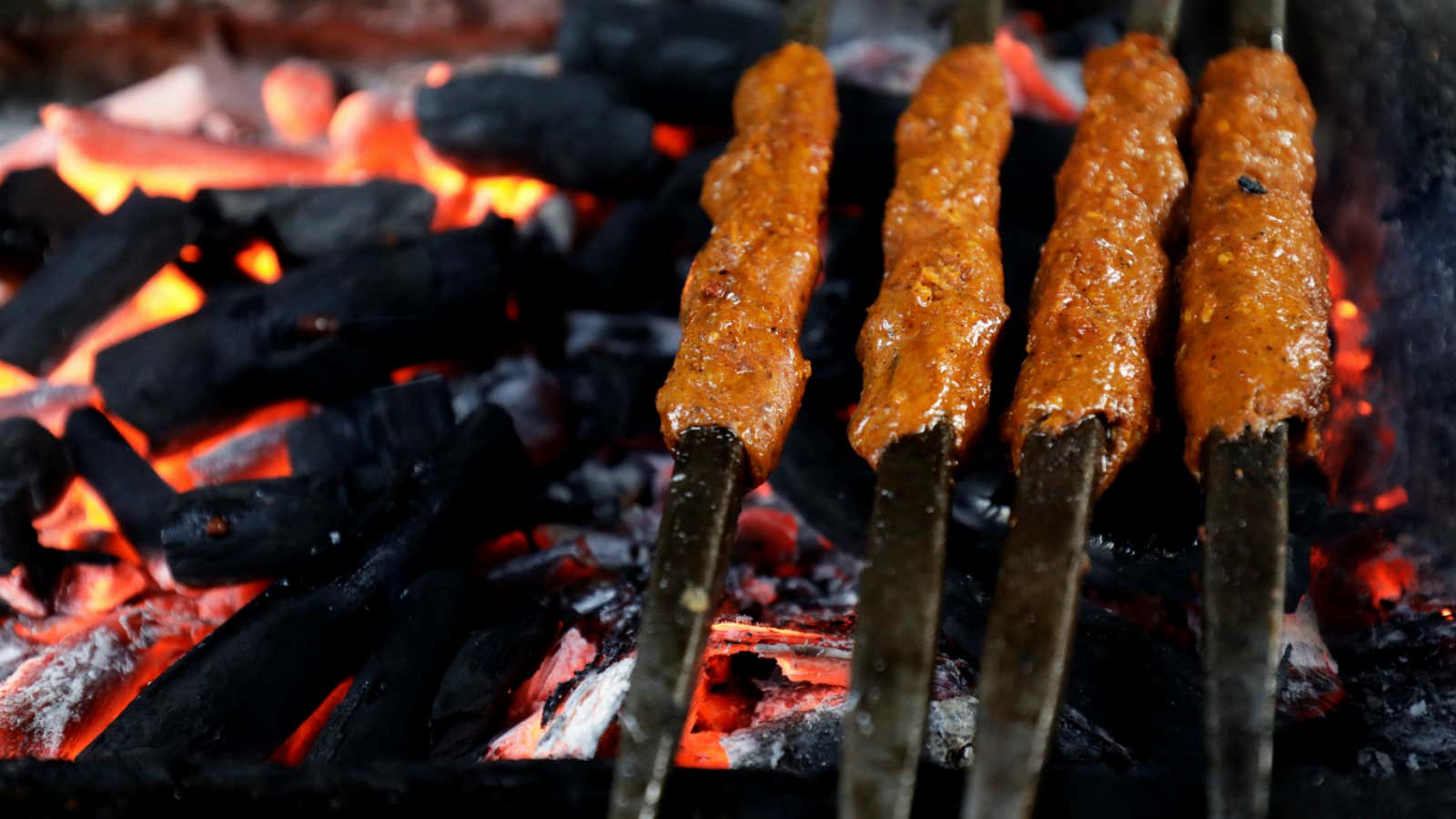In the mid-2000s, Prosenjit Choudhury, the restaurant manager at Indore’s Sayaji Hotels, had an idea. So he went up to his boss, Sajid Dhanani, who approved.
The suggestion was simple: setting up a live-grill counter.
The instant success of Choudhury’s experiment spawned an unlikely enterprise called Barbeque Nation in 2006.
Now, 12 years later, the chain of 100 restaurants, synonymous with large grilled buffets, is readying to hit India’s stock market with a Rs700 crore initial public offering (IPO) sometime in the next six months.
Grilled to perfection
Though Indore was home to Dhanani, he thought it better to launch Barbecue Nation in Pali Hill, an upmarket neighbourhood in Mumbai.
The idea of live grill turned out to be a big pull for diners, and six months after its opening, patrons were returning. Over the next two years, Barbeque Nation expanded with 13 more restaurants in cities such as Bengaluru and New Delhi. Choudhury ran the show as CEO.
The success primarily came from prudent pricing, which suited families and corporates who often sought bookings for big groups. The fixed-price menu—Rs450 per head in 2006—now starts at Rs599 for the live grill and a full buffet.
“They are a quintessential value-food retailer,” said Saloni Nangia, president of the consulting firm, Technopak Advisors. ”You often find large groups and families at their outlets.”
By 2011, when India’s restaurant business was ready to boom, Barbeque Nation had established its presence in key locations across the country. The same year, private equity (PE) deals in the restaurant market, too, soared. Fresh investments led to a mushrooming of chains serving local and international cuisines in what was till then largely an unorganised space.
Following Dhanani’s death in 2012, his brother Kayum took charge. Under him, the business raised Rs110 crore from PE firm CX Partners. The chain had 33 outlets then, but Kayum was thinking bigger.
While consumption from bigger cities remained key, smaller towns seemed more promising. ”After a point, metros will give you a limited market to expand in,” said Kayum, now Barbeque Nation’s managing director.
By 2016, Barbeque Nation had added 64 new outlets, mostly in tier-2 and -3 cities like Madurai, Meerut, and Tirupur. These new ones were mostly smaller in size, and the food on the menu was 15% less expensive than that served in big cities.
“In India, if you are able to crack the smaller markets, you can grow multi-fold,” Kayum told reporters in New Delhi on April 04.
And that strategy has proved to be a winner.
The company’s turnover has increased by 170% from Rs184 crore in the financial year 2013 to Rs503 crore in the financial year 2017; profits more than doubled from Rs4.3 crore to Rs10.2 crore in this period.
Smaller cities will remain the chain’s big growth driver. “In the next five years,” said Kayum, “we will be extremely busy opening stores in these markets.”
Menu for success?
While Indians still eat most meals at home, urban spends on out-of-home consumption have risen rapidly in recent years. The country’s eating-out market is today pegged at $48 billion.
While foreign food chains like McDonald’s and Domino’s have already tapped in, Indian firms, too, have evolved since Barbeque Nation’s arrival. Large cities like Delhi, Mumbai, and Bengaluru have seen scores of rivals popping up. Does this bother Barbeque Nation?
“Consumers who go there (to the competition) are very different,” Kayum said, adding that his chain gets about 70% of its bookings through reservations.
The chain is now opening up to newer markets.
Apart from expansion in both metros and tier-2 cities within India, the company is now eyeing international markets, including West Asia, North America, and other parts of South Asia. A presence in the overseas market will put Barbeque Nation in the league of other Indian restaurant chains such as Saravana Bhavan, Moti Mahal, and Mainland China. Some Rs200 crore from the upcoming IPO will go into funding its expansion plans apart from clearing debt.
With more than a decade of success in the bag, Barbeque Nation’s flavours should find takers, especially in smaller markets within India, said Technopak’s Nangia. “This will be a solid (consumption) story going forward.”
